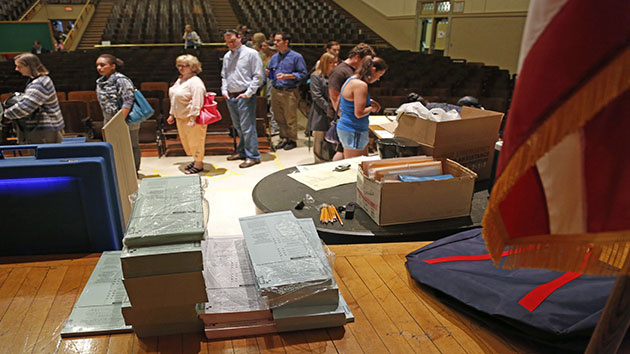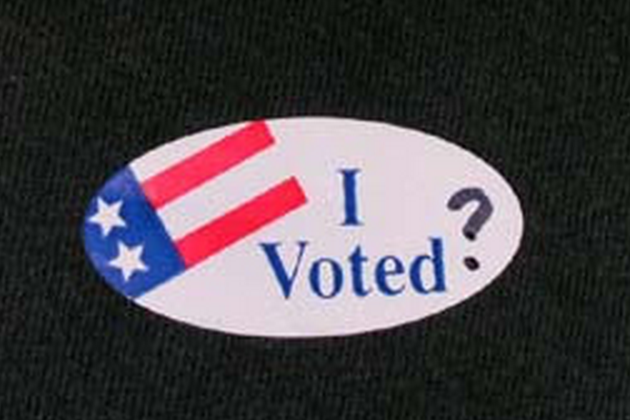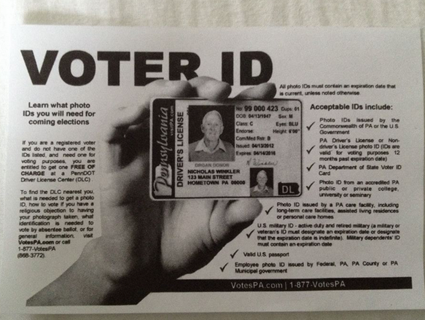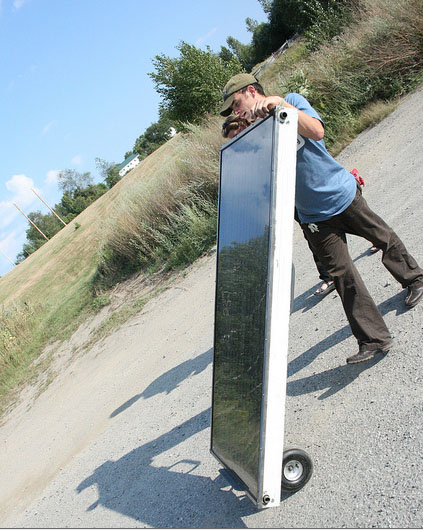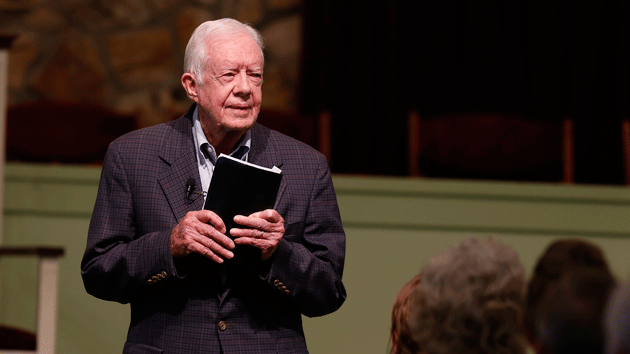
Former president Jimmy CarterJohn Bazemore/AP Photo
Yesterday, a three-judge panel of the 7th Circuit Court of Appeals—all Republican appointees—paved the way for Wisconsin’s controversial voter ID law to take effect in time for this year’s midterm elections. Civil rights groups had sued the state to block the law, saying that it would likely disenfranchise more than 300,000 voters who didn’t possess the proper ID to vote—a disproportionate number of whom were likely to be minority and low-income people. But in justifying the decision, Judge Frank Easterbrook wrote that essentially, critics were overhyping the potential for the ID requirement to keep people from voting. After all, he said, the idea has been endorsed by none other than former democratic president Jimmy Carter, a man who has made election integrity the centerpiece of his post-presidential life.
But does Jimmy Carter really support voter ID laws?
The ex-president and former peanut farmer has become a familiar reference point for Republicans looking to shore up support for voter ID laws. Conservative outlets such as Breitbart News frequently invoke Carter as the cheerleader-in-chief for voter ID laws by insisting that even Jimmy Carter supports them.
The Carter riff dates back to 2005, when he co-chaired a bipartisan commission on election reform. One of the many measures proposed by the commission was a requirement for a voter ID. That tidbit from the commission report has wended its way into conservative talking points—and on up to the Supreme Court, which approvingly cited Carter in the 2008 Crawford v. Marion County Election Board 6-to-3 decision upholding Indiana’s voter ID law, thereby freeing other states to create their own such laws: “The electoral system cannot inspire public confidence if no safeguards exist to deter or detect fraud or to confirm the identity of voters,” the majority opinion stated. Yesterday, Judge Easterbrook—appointed to the court by Ronald Reagan—referenced Carter and that 2008 Supreme Court decision in upholding Wisconsin’s ID law.
But what Carter’s commission proposed, and what GOP-controlled states have actually passed, diverge greatly. That’s one reason why Carter no longer seems to supports voter ID—a fact that Judge Easterbrook missed.
In 2008, while the Supreme Court was considering Crawford, Carter co-wrote a New York Times op-ed with the election commission’s co-chair, former Reagan chief of staff, James A. Baker III. The pair recognized the arguments on both sides of the debate, saying that Republicans’ concerns about fair elections were valid and that Democrats’ fears that ID requirements would disenfranchise voters also had basis in fact. But they reiterated that the 2005 commission had recommended a special voter ID card based on the REAL ID Act of 2005, one that would be issued free by the states and distributed through mobile units that would ensure everyone would get one, even if they didn’t drive. Carter and Baker’s op-ed also emphasized that any voter ID requirement needed to be phased in slowly. “The Supreme Court can lead the way on the voter ID issue,” they concluded. “It can support voter ID laws that make it easy to vote but tough to cheat.“
Virtually none of that’s happened. For one thing, the REAL ID Act, which would have created something like a national ID card, became hugely controversial and was aggressively opposed by virtually everyone: states, libertarians, evangelical Christians, and even the ACLU. From that point on, however, voter ID became something pushed almost exclusively by Republicans who weren’t interested in implementing any of the other recommendations of the bipartisan commission that would have also expanded access to voting. Carter lamented back in 2008, before a flurry of new ID laws took effect, that “the current crop of laws are not being phased in gradually and in a fair manner that would increase—not reduce—voter participation.” That’s one reason why he seems to have changed his tune on voter ID.
Last year, on the 50th anniversary of the March on Washington, Carter spoke on the National Mall and addressed the reality of the voter ID laws that have materialized since he first suggested that they might be a good idea. “I believe we all know how Dr. King would have reacted to the new ID requirements to exclude certain voters, especially African Americans,” Carter said. Today, there isn’t much doubt about how Carter feels about voter ID laws like the one in Wisconsin, but that doesn’t seem to keep conservative judges from continuing to claim his endorsement for their opinions upholding them.

